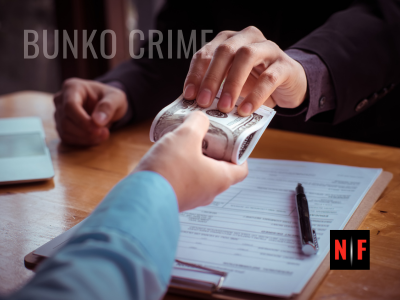Departments of Justice and Homeland Security Partnering on Cross-Agency Trade Fraud Task Force
August 29, 2025
Why Should This Matter to Financial Investors?
For financial investors, trade fraud is not simply a matter of government oversight—it directly impacts markets, company valuations, and global supply chain stability. Fraudulent practices such as customs evasion, mislabeling of goods, counterfeiting, and illegal transshipping can undermine legitimate businesses, distort trade flows, and erode investor confidence. When large corporations or foreign suppliers are implicated in fraud investigations, the financial consequences can include stock volatility, legal liabilities, regulatory penalties, and even the collapse of entire ventures. By paying close attention to news such as the Department of Justice and Homeland Security’s partnership on a cross-agency Trade Fraud Task Force, investors can better anticipate risks that could affect their portfolios.
How Naked Fraud Website Helps Investors Stay Ahead
The Naked Fraud Website plays a critical role in bridging the gap between government announcements and investor decision-making. By covering the latest fraud-related news stories—including trade fraud, securities fraud, and corporate misconduct—Naked Fraud provides readers with timely, plain-language analysis of what enforcement actions and criminal investigations may mean for financial markets. For investors who rely on transparency to make informed choices, Naked Fraud acts as a watchdog platform, spotlighting cases where fraud could impact shareholder value, international partnerships, and investor trust.
Types of Fraud Investors Should Understand
Fraud takes many forms, and understanding the distinctions is key for investors who want to minimize exposure. Trade fraud involves manipulating customs or import/export regulations for illegal financial gain. Securities fraud includes insider trading, market manipulation, and misrepresentation of financial information. Corporate fraud often entails embezzlement, accounting manipulation, or executive-level misconduct that misleads stakeholders. Consumer fraud can affect brand trust and sales, ultimately harming stock performance. Naked Fraud tracks all these categories, ensuring readers stay informed about the potential ripple effects across industries and investments.
Practical Investor Takeaways
The announcement of a cross-agency Trade Fraud Task Force is a strong signal that enforcement will intensify in the years ahead. For investors, that means increased scrutiny of companies that rely heavily on global supply chains, import/export relationships, and international partnerships. Awareness is a critical defensive tool—by monitoring updates from both official government sources and independent watchdogs like Naked Fraud, investors can spot red flags early, reduce their exposure to risky firms, and align their capital with companies that value compliance and transparency.
FAQs
Q: What is trade fraud?
A: Trade fraud typically involves schemes to avoid paying customs duties, misrepresenting the origin of goods, or importing counterfeit items. These activities undermine fair trade and create risks for investors tied to affected companies.
Q: How does securities fraud differ from corporate fraud?
A: Securities fraud relates to misleading investors about stock value, insider trading, or market manipulation. Corporate fraud refers to internal misconduct such as accounting fraud, embezzlement, or misuse of company assets. Both can severely harm investor confidence and company valuation.
Q: Why should investors follow fraud-related news?
A: Fraud can trigger lawsuits, regulatory penalties, stock crashes, and reputational damage. By staying informed, investors can better protect their portfolios and make decisions based on transparency and risk assessment.
Related Links




Oh great, another task force. Because what the world needs right now is more agencies, more bureaucracy, and more “cross-agency collaboration” to stop fraud. Let’s hope this one actually gets a little more done than the last one that just put out a press release and called it a day. Maybe they’ll get around to fixing the problem after their next budget meeting!